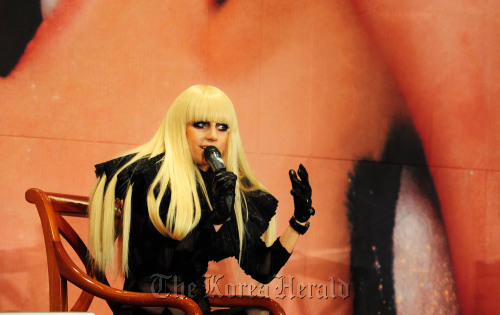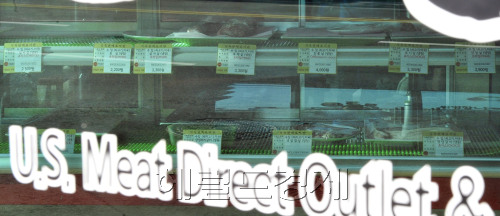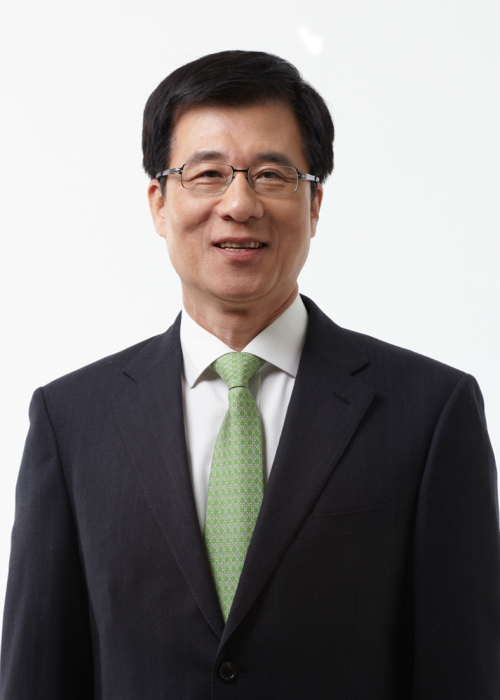U.S. pop star gives media run-around, meets fans on
quiet
Lady Gaga has been playing hide-and-seek with reporters and photographers waiting at her hotel and outside Seoul Olympic Stadium this week, trying to remain unseen in public before her concert on Friday.
The 26-year-old artist arrived in Seoul last Friday, a week prior to her concert, raising expectation of her popping up on streets of Seoul. However, reporters and photographers raised eyebrows about the celebrity’s secluded approach, contrasted with that of fellow international celebrity Jessica Alba, who was on a family tour on the same week.
“I took photographs for news reporting for decades, and I took a special-rated photo of Jessica Alba. But Lady Gaga, she just won’t come out,” said a photographer from foreign press who has been trying to catch her since Sunday. “I am getting tired of this.”
Hyundai Card, an official sponsor of Gaga’s Seoul concert, adhered to silence when asked of Lady Gaga and her silence. A PR official with Live Nation Korea identified with only her surname Kim repeated, “I cannot give out anything because I do not know anything. I can only imagine how she feels from her comments on Twitter.”
But she confirmed that her next stop will Hong Kong, as listed in the artist’s official website, and will not stop by the U.S. in between.
Even though the artist played hide-and-seek for six days, she suddenly showed up for her fans waiting at the lobby of The Ritz-Carlton in southern Seoul where the singer has been staying. Some of the fans got to take pictures with their idol, while the press failed to catch a glimpse of her.
One Korean high school student said that she had been “incredibly lucky because she waited only 30 minutes to see Lady Gaga.” She also found it fortunate that the concert will take place on the final day of her school exam period. She looked ecstatic when she whispered that she borrowed an identification card from “someone she knows well” in order to get into the concert. Lady Gaga’s Seoul concert was banned for age under-18s by a government agency, claiming her song “Just Dance” is inappropriate for young people here.
Another high school student who bore with him a present for Lady Gaga expressed his disappointment about the 18-and-up age limit.
“I didn’t go to school on the day when the ticket sales began. I was so nervous, waiting in front of my computer. Later they changed their age limit and I was so sad. My mom felt bad about it too, and tomorrow she is going to the concert all by herself.”
Shin Yu-ho, 20, waited at the lobby with a bag and a design sketch made exclusively for Lady Gaga. “My dream is to become a world-famous fashion designer … I wanted to give this bag designed by myself to Lady Gaga first.”
Fans, hoping to see Lady Gaga, came in clothes that their star would like the most. A Japanese fan named Shoko Kimura dressed up in Gaga-style, striped top and pants with a black leather belt, a pair of sunglasses labeled “Lady Gaga” and a police-style hat.
“She has very big, hot heart … I love her fashion. And Gaga is myself … I respect her and her lifestyle. So I express that with my clothes.”
By Chung Joo-won (joowonc@heraldm.com)
Lady Gaga has been playing hide-and-seek with reporters and photographers waiting at her hotel and outside Seoul Olympic Stadium this week, trying to remain unseen in public before her concert on Friday.
The 26-year-old artist arrived in Seoul last Friday, a week prior to her concert, raising expectation of her popping up on streets of Seoul. However, reporters and photographers raised eyebrows about the celebrity’s secluded approach, contrasted with that of fellow international celebrity Jessica Alba, who was on a family tour on the same week.
 |
| Lady Gaga speaks at a press conference in Seoul in this 2009 file photo. The singer has given no such events in Seoul ahead of Friday’s concert. (Lee Sang-sub/The Korea Herald) |
“I took photographs for news reporting for decades, and I took a special-rated photo of Jessica Alba. But Lady Gaga, she just won’t come out,” said a photographer from foreign press who has been trying to catch her since Sunday. “I am getting tired of this.”
Hyundai Card, an official sponsor of Gaga’s Seoul concert, adhered to silence when asked of Lady Gaga and her silence. A PR official with Live Nation Korea identified with only her surname Kim repeated, “I cannot give out anything because I do not know anything. I can only imagine how she feels from her comments on Twitter.”
But she confirmed that her next stop will Hong Kong, as listed in the artist’s official website, and will not stop by the U.S. in between.
Even though the artist played hide-and-seek for six days, she suddenly showed up for her fans waiting at the lobby of The Ritz-Carlton in southern Seoul where the singer has been staying. Some of the fans got to take pictures with their idol, while the press failed to catch a glimpse of her.
One Korean high school student said that she had been “incredibly lucky because she waited only 30 minutes to see Lady Gaga.” She also found it fortunate that the concert will take place on the final day of her school exam period. She looked ecstatic when she whispered that she borrowed an identification card from “someone she knows well” in order to get into the concert. Lady Gaga’s Seoul concert was banned for age under-18s by a government agency, claiming her song “Just Dance” is inappropriate for young people here.
Another high school student who bore with him a present for Lady Gaga expressed his disappointment about the 18-and-up age limit.
“I didn’t go to school on the day when the ticket sales began. I was so nervous, waiting in front of my computer. Later they changed their age limit and I was so sad. My mom felt bad about it too, and tomorrow she is going to the concert all by herself.”
Shin Yu-ho, 20, waited at the lobby with a bag and a design sketch made exclusively for Lady Gaga. “My dream is to become a world-famous fashion designer … I wanted to give this bag designed by myself to Lady Gaga first.”
Fans, hoping to see Lady Gaga, came in clothes that their star would like the most. A Japanese fan named Shoko Kimura dressed up in Gaga-style, striped top and pants with a black leather belt, a pair of sunglasses labeled “Lady Gaga” and a police-style hat.
“She has very big, hot heart … I love her fashion. And Gaga is myself … I respect her and her lifestyle. So I express that with my clothes.”
By Chung Joo-won (joowonc@heraldm.com)









